Update Dec 30, 2017 – 4:
I've managed to unpack .jks file and extract key and certs from it. To do this I wrote a small nodejs program inspired by signerbox2 an open-source project that uses .jks to sign data. In particular, I use jksreader npm package, which only exists for several days now!
The program I wrote looks like this:
const fs = require('fs');
jksreader = require('jksreader'),
pathToFile = process.argv[2],
password = process.argv[3],
contents = fs.readFileSync(pathToFile),
parsedContent = jksreader.parse(contents);
var key = jksreader.decode(parsedContent.material[0].key, password);
fs.writeFileSync('key', key);
for (var i = 0; i < parsedContent.material[0].certs.length; i++) {
var cert = parsedContent.material[0].certs[i];
fs.writeFileSync('cert' + i, cert);
}
This program is invoked like this:
node index.js /path/tp/my_key.jks my_password
The output looks like a bunch of files:
cert0
cert1
cert2
cert3
key
The certs are in DER format, and can be read like this (note the -engine dstu parameter):
openssl x509 -in cert2 -inform der -text -noout -engine dstu
However, I can't figure out how to read (or convert to PEM) the key. I'm still working on it. The openssl asn1parse works well on the key file. Here's the openssl asn1parse output. I'm not sure where to go from here.
Update Dec 28, 2017 – 3:
I installed Keystore Explorer. It cannot extract the private key either. It can show a bit more info than I was able to get with keytool. The only weird thing here is that there are two almost identical copies of the same certificate, named after my name (in caps):
Here's the indication that the entry follows DSTU-4145 standard:
Update Dec 28, 2017 – 2:
The key contained in .jks follows or somehow related to "DSTU-4145 signature scheme" (algorithm). This is a government standard in Ukraine.
I barely know anything about signature schemes; DSTU-4145 can be seed on the BouncyCastle specification page, for instance.
Maybe I somehow need to install the DSTU-4145 algorithms, so that keytool knows how to extract the private key?
Update Dec 28, 2017 – 1:
Doing this under the following version of java on Ubuntu:
$ java -version
java version "1.7.0_151"
OpenJDK Runtime Environment (IcedTea 2.6.11) (7u151-2.6.11-2ubuntu0.14.04.1)
OpenJDK 64-Bit Server VM (build 24.151-b01, mixed mode)
Also does not work on the following version of Java under macOS:
java version "1.8.0_144"
Java(TM) SE Runtime Environment (build 1.8.0_144-b01)
Java HotSpot(TM) 64-Bit Server VM (build 25.144-b01, mixed mode)
I'm provided with a .jks from an official authority.
I'd like to convert .jks file into .pkcs12 to use it with openssl to actually sign something. Instead, I get an error.
This is what I'm doing:
$ keytool -importkeystore \
-srckeystore my_keystore.jks \
-destkeystore my_keystore.pkcs12 \
-deststoretype pkcs12
Enter destination keystore password:
Re-enter new password:
Enter source keystore password:
Enter key password for <my_key>
keytool error: java.security.UnrecoverableKeyException: excess private key
At the same time, however, the key can be listed:
$ keytool -list -keystore my_key.jks
Enter keystore password:
Keystore type: JKS
Keystore provider: SUN
Your keystore contains 1 entry
my_key, Jan 18, 1970, PrivateKeyEntry,
Certificate fingerprint (SHA1): A1:B2:C3:D4:E5:F6:85:E4:2B:03:B9:68:FD:AE:9D:5B:24:CF:BF:FF
What am I doing wrong?

